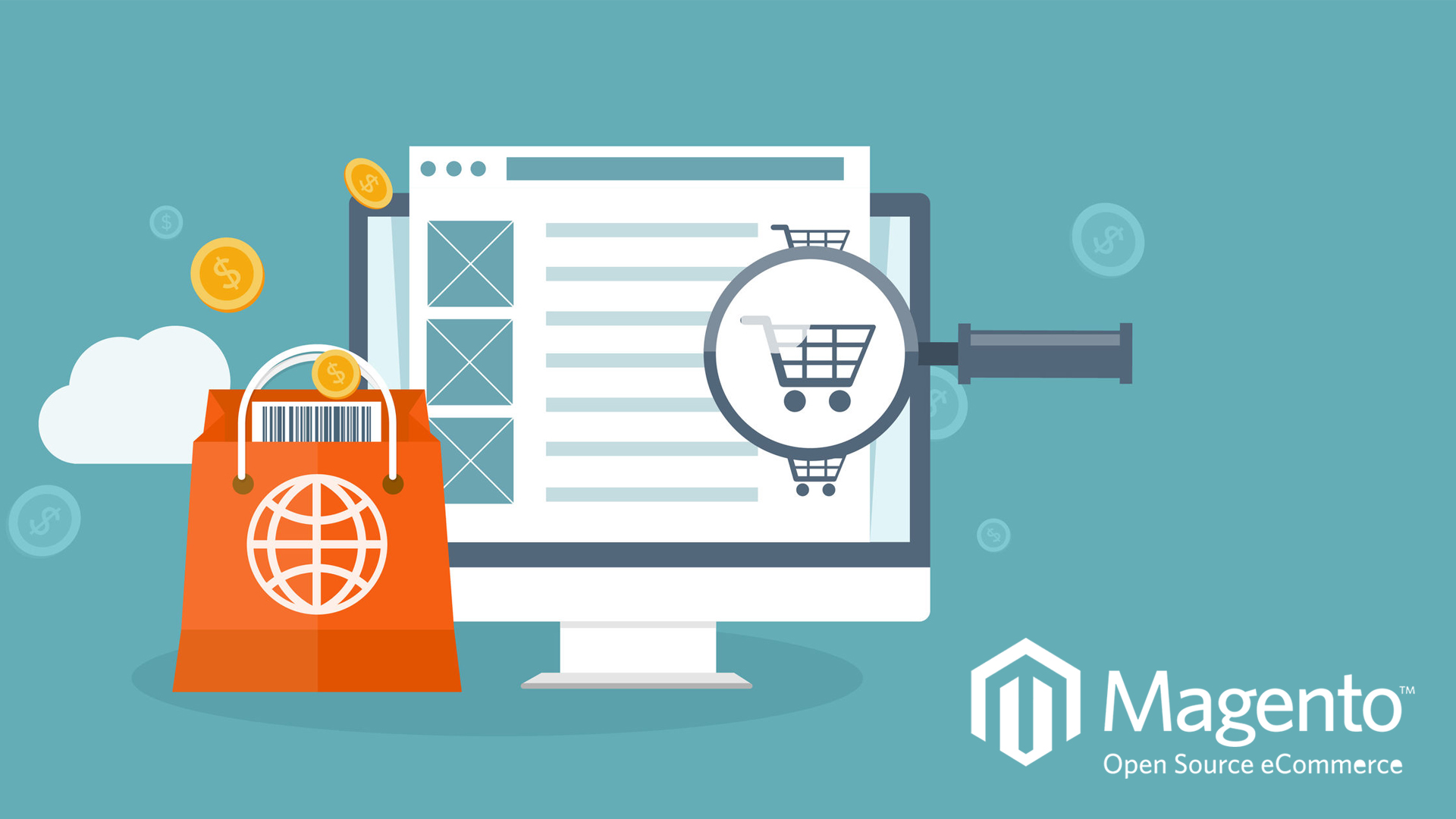
Understanding the Magento eCommerce Platform
By David Ephraim, ATAK Interactive President, Development + Operations
Choosing an eCommerce platform ideally suited to the needs of your unique business can be a bit like trying to find the right foot for a particular fabled glass slipper. There are a lot of options out there, but many of them aren’t a good fit. Magento offers new solutions for virtually all types of businesses with the flexibility to customize your own solutions for increased success.
Why Use Magento as your Business eCommerce Platform?
Your business needs an eCommerce system you can rely on day in and day out even as your business grows. While many platforms offer vague promises of great features and improved design, Magento delivers with global implementation partners and customizable tools. You know exactly what your business needs from an eCommerce platform: seamless shopping that leads to customer satisfaction, scalability as your business grows, and customizability for customers and business operation, to name a few. At the end of the day, your eCommerce platform should provide you with the confidence you need to keep running your business successfully. Here are a few ways Magento makes an ideal B2B eCommerce platform for businesses big and small.
- Built-in features are designed for B2B Growth: Many eCommerce platforms require you to immediately purchase extensions before the software is even fit for use. Magento provides a wide variety of easy-to-use features like personalized price lists, SEO features, and custom catalogs capabilities right out of the box.
- One interface supports multiple storefronts: Whether you’re dealing with multiple brand names, languages, or currencies, there are many reasons a variety of storefronts are necessary. Magento allows you to use one system to manage all business tasks for all your stores.
- Powerful search function saves time for businesses: An estimated 70% of consumer time is spent searching for specific products. Magento eliminates this wasted time for companies with a powerful search function.
- Magento is open source: This means it’s highly adaptable for anyone with the knowledge to enhance or repair the code.
- Allows integration with tools and extensions: Magento is designed to integrate with existing ERP and CRM software for convenience and control.
- Active developer communities offer additional support: Since Magento is so widely used, forums and online communities provide a great source of extra help.
Options from Magento
Magento offers two key eCommerce options for businesses. While both options provide a host of base features, some businesses may prefer the advanced customizability of the Commerce Edition. The descriptions below highlight the differences between each to help you decide which one is best for your business.
Magento Open Source Edition
Open Source (formerly known as Community Edition) is Magento’s free open source platform available for all users to download, install, and enhance. With plenty of useful features, Open Source offers a high-quality eCommerce platform that will satisfy the needs of many different types of businesses. With features like mobile-optimized shopping, global selling, instant purchase, and site search; Open Source is a great place to start for most small to medium businesses (SMB). Additionally, there are practically unlimited ways to extend the usefulness of Magento with a continually growing marketplace of apps, tools, and extensions.
Magento Commerce Edition
Commerce (formerly known as Enterprise) is Magento’s licensed version of the platform which is generally used by larger companies with more customer traffic. Commerce has all the great features of Open Source plus a slew of additional features designed to keep up with the growth of larger businesses. One of the biggest attractions of Commerce is Magento’s Hosted Cloud features which include:
- Optimized cloud commerce
- Global availability
- Cloud availability service level agreement up to 99.9%
- Fast page loading
- Performance monitoring tools
- Streamlined updates and testing
- PCI compliant
- Enhanced security
- Easy deployment
In addition to Magento Cloud, Commerce provides many tools to increase sales and customer satisfaction. Some of the most popular features include B2B functionality, customer loyalty tools, and content staging and preview. Additional support is available with Commerce Edition as well. For many larger companies with significant sales often decide the added benefits of Magento Commerce are worth the fees.
Comparing Magento 1 to Magento 2
It’s been said that necessity is the mother of invention and that holds true for the launch of Magento. Developed in 2007 to fill the gaps left by leading eCommerce platforms for online merchants, Magento Community was released in 2008 and followed by Magento Commerce a year later with amazing results. Magento quickly became the world’s most popular eCommerce company. In 2015, Magento 2 was released with many advanced features.
While both versions offer businesses many useful features, Magento 2 offers more advantages to increase speed, sales, security, and functionality.
Some of the differences you can find in Magento 2 include:
- Increased speed for better loading time
- New technology for better store performance
- Conflicting extensions are eliminated with plugins that overlap code instead of overriding it
- A user-friendly dashboard with more features
- Increased security
In the past, the choice between Magento 1 and Magento 2 had much to do with the current comfort level of the business with the use of Magento 1. However, making the switch will soon become necessary as updates to Magento 1 are discontinued. Support for Magento 1 will last through June 2020.
Upgrading from Magento 1 to Magento 2
Businesses content with the use of Magento 1 may be dreading the switch to the new version. However, the company is striving to make the move as painless as possible. As the life-cycle of Magento 1 comes to a close, stepping up to Magento 2 is the obvious choice. Preparing for the change is the best way to ensure a seamless transfer.
Challenges
Much of the technology for Magento 2 is entirely different, which can lead to errors and headaches without a carefully planned migration. It’s vital to back up and clone all of the information in your Magento 1 store to make the switch smoothly. Some common issues after migrating to Magento 2 may include:
- Administration login problems
- Invalid indexers
- 404 errors
- Missing graphics
- Extension installation issues
- Possible data loss
Upgrading to Magento 2 is a necessary change if you intend to stay with the platform, and there’s no doubt the advantages will outweigh the potential headaches during migration. However, a sound knowledge of Magento technology is needed to make the switch seamlessly. ATAK Interactive is a full-service digital marketing agency with extensive experience in the building and management of eCommerce websites. Contact us today for information regarding our Magento 1 to Magento 2 migration services. We’ll take care of the headaches of migration and let you get back to running your business.
Related Posts

How UI/UX Design Trends Are Shaping the Future of User Experience
User Experience (UX) and User Interface (UI) design are critical components of creating digital products that users enjoy using. Over the years, these…

How can a UI/UX Agency Impact My Business and Improve Our Customer Behavior?
In today's world, a strong online presence is crucial for the success of any business. One of the key factors that can make or break your online presence…

Why Your Company Needs To Outsource Web Development Services?
Web development services are an essential part of creating and managing websites. Outsourcing web development services can provide businesses with cost…